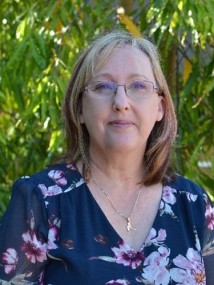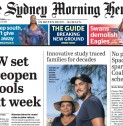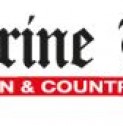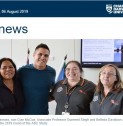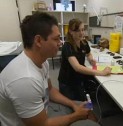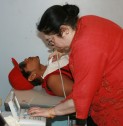Dr Belinda Davison
Senior Research Officer, Child and Maternal Health Division
Qualifications:
PhD, Charles Darwin University, 2020; Master in Public Health, Charles Darwin University, 2012; Graduate Diploma in Public Health, Charles Darwin University, 2011; Diploma in Nursing, Royal Hobart Hospital, 1990
Approved level of HDR supervision at Charles Darwin University:
Associate Supervisor
Location:
Darwin - Royal Darwin Hospital campus
Biography:
Dr Belinda Davison is a Senior Research Fellow and Program Manager of Menzies’ Life Course team based in Darwin. She has worked in the NT for the past 25 years, initially as a registered nurse and 16 years in health research. Her work with the Menzies’ Life Course studies is specifically focused on examining the early antecedents of chronic disease, including kidney disease and mental health, using a life course approach.
She has been influential in the successful continuation, collection and management of health data (including body size, shape and composition, cardiovascular measures and renal function, emotional status, and lifestyle factors, as well as qualitative in-depth interviews) as part of two life course studies across three follow-ups over a 16-year timespan. Namely, the Aboriginal Birth Cohort (ABC) study, the longest-running and largest health study involving Aboriginal Australians and the non-Indigenous Top End Cohort.
Through her extensive travel with the ABC study, Belinda has developed strong connections with over 40 urban and remote First Nations communities across the NT. She is proficient in community engagement and feedback, leading the co-designing of numerous culturally appropriate and safe information brochures, flip charts, data collection tools and questionnaires, and feedback resources. Belinda has a strong interest in using the knowledge gained from the life course approach to inform the development of co-designed, appropriate protocols and resources for the detection and management of chronic disease, particularly kidney disease and mental health. She has recently completed her PhD, examining the influence stress has on the emotional wellbeing of young Indigenous and non-Indigenous adults.
Her research experience has also involved a broad range of qualitative and quantitative research projects including using body mapping to engage adolescent in a sexual health education study which resulted in the development of an educational tool, and a clinical study examining the renal health of preterm babies.
Research Themes
- Child and Maternal Health
- Top End Cohort
- Aboriginal Birth Cohort stud
- Aboriginal Birth Cohort study
- Top End cohort
-
Innovative study traced families for decades
The Life Course study was started in 1987 by the late pediatrician Dr Susan Sayers from the Menzies School of Health Research in Darwin.
-
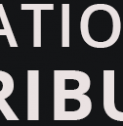
Research shows Indigenous Australians more likely to suffer from emotional distress
Indigenous Australians are six times more likely to experience stressful events in their lives compared to their non-Indigenous counterparts, new research from a Charles Darwin University PhD graduate has found.
-

Research shows Indigenous Australians more likely to suffer from emotional distress
Indigenous Australians are six times more likely to experience stressful events in their lives compared to their non-Indigenous counterparts, new research from a Charles Darwin University PhD graduate has found.
-
CDU to hold 'virtual' graduation ceremony
PhD graduand Belinda Davison will speak as part of the ceremony.
-
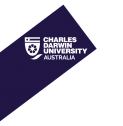
Students to celebrate academic achievements at virtual grad
Dr Belinda Davison is the Life Course Program project manager at Menzies, which aims to examine the effect of early life events on later health and disease.
-
Aboriginal Birth Cohort study reaches 32 years of looking at health in the NT community
It is the longest and largest study of Aboriginal people in Australia, with 686 participants all born between 1987 and 1990 at Royal Darwin Hospital.
-
Menzies runs next phase of Aboriginal health study
Australia’s largest and longest running study of Aboriginal people, the Aboriginal Birth Cohort Study (ABC), has begun its fifth wave of data collection.
-
New stage in Indigenous health study
Campus Morning Mail reports on Menzies School of Health Research commencing collecting data for a fifth wave of its Aboriginal Birth Health Cohort Study.
-

Rain, hail or shine - Landmark study rolls on
The largest, longest-running and most significant study of the lives of Indigenous babies born in Australia continued its fourth wave of data collection throughout 2014.
-
730NT: Tracking down Darwinites' health
It's the nation's largest and longest-running study of Aboriginal people - and it's happening here in the Northern Territory.
-
On the road again: Nation's oldest and largest Aboriginal health study
The oldest and largest study of Aboriginal people in Australia has begun its fourth wave of data collection.
- Chenhall, R., Davison, B., Fitz, J., Pearse, T., & Senior, K. (2013). Engaging youth in sexual health research: refining a “youth friendly” method in the Northern Territory, Australia. Visual Anthropology Review, 29(2), 123-132.
- Davison, B., Goodall, J., Whalan, S., Montgomery‐Quin, K., Howarth, T., & Singh, G. (2019). Nutritional dual burden in Indigenous young adults: The geographical differential. Australian Journal of Rural Health, 27(1), 14-21.
- Davison, B., Liddle, R., Fitz, J., & Singh, G. R. (2020). Computerised emotional well-being and substance use questionnaires in young Indigenous and non-Indigenous Australian adults. SAGE Open Medicine, 8, 2050312120906042.
- Davison, B., Nagel, T., & Singh, G. (2017). Life, lifestyle and location: examining the complexities of psychological distress in young adult Indigenous and non-Indigenous Australians. Journal of Developmental Origins of Health and Disease, 8(5), 541-549.
- Davison, B., Singh, G. R., & McFarlane, J. (2018). Hair cortisol and cortisone as markers of stress in Indigenous and non-Indigenous young adults. Stress, 1-11.
- Davison, B., Singh, G. R., Oguoma, V. M., & McFarlane, J. (2019). Fingernail cortisol as a marker of chronic stress exposure in Indigenous and non-Indigenous young adults. Stress, 1-10.
- Singh, G. R., Davison, B., Ma, G. Y., Eastman, C. J., & Mackerras, D. E. (2019). Iodine status of Indigenous and non‐Indigenous young adults in the Top End, before and after mandatory fortification. Medical Journal of Australia, 210(3), 121-125.
- Sjöholm, P., Pahkala, K., Davison, B., Juonala, M., & Singh, G. R. (2018). Early life determinants of cardiovascular health in adulthood. The Australian Aboriginal Birth Cohort study. International journal of cardiology, 269, 304-309.
- Sutherland, M. R., Chatfield, M. D., Davison, B., Vojisavljevic, D., Kent, A. L., Hoy, W. E., . . . Black, M. J. (2019). Renal dysfunction is already evident within the first month of life in Australian Indigenous infants born preterm. Kidney international, 96(5), 1205-1216.
- Vino, T., Singh, G. R., Davison, B., Campbell, P. T., Lydeamore, M. J., Robinson, A., . . . Geard, N. (2017). Indigenous Australian household structure: a simple data collection tool and implications for close contact transmission of communicable diseases. PeerJ, 5, e3958

